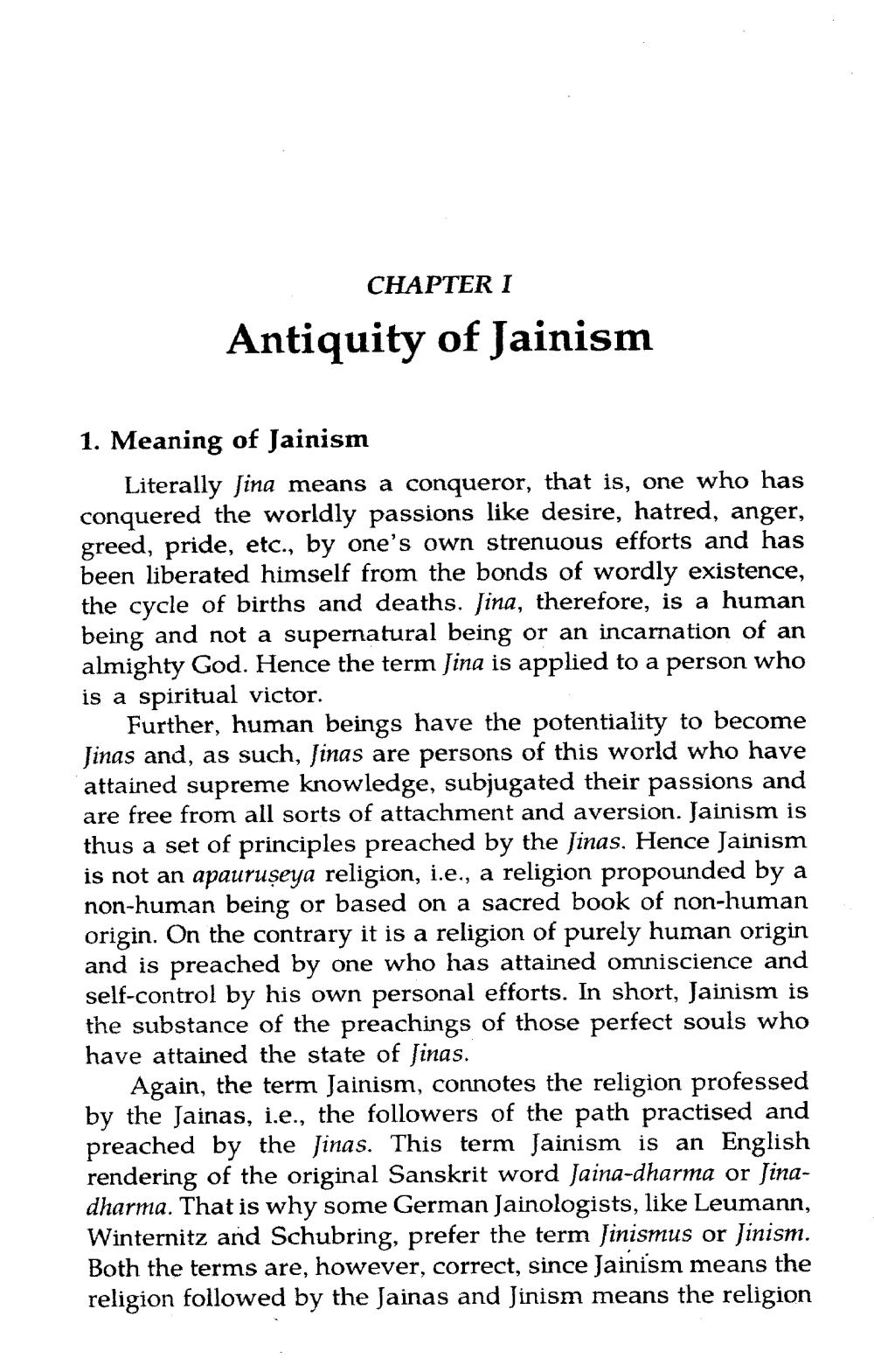________________
CHAPTER I Antiquity of Jainism
1. Meaning of Jainism
Literally sina means a conqueror, that is, one who has conquered the worldly passions like desire, hatred, anger, greed, pride, etc., by one's own strenuous efforts and has been liberated himself from the bonds of wordly existence, the cycle of births and deaths. Jina, therefore, is a human being and not a supernatural being or an incarnation of an almighty God. Hence the term Jina is applied to a person who is a spiritual victor.
Further, human beings have the potentiality to become Jinas and, as such, Jinas are persons of this world who have attained supreme knowledge, subjugated their passions and are free from all sorts of attachment and aversion. Jainism is thus a set of principles preached by the Jinas. Hence Jainism is not an apauruşeya religion, i.e., a religion propounded by a non-human being or based on a sacred book of non-human origin. On the contrary it is a religion of purely human origin and is preached by one who has attained omniscience and self-control by his own personal efforts. In short, Jainism is the substance of the preachings of those perfect souls who have attained the state of Jinas.
Again, the term Jainism, connotes the religion professed by the Jainas, i.e., the followers of the path practised and preached by the Jinas. This term Jainism is an English rendering of the original Sanskrit word Jaina-dharma or Jinadharma. That is why some German Jainologists, like Leumann, Winternitz and Schubring, prefer the term Jinismus or Jinism. Both the terms are, however, correct, since Jainism means the religion followed by the Jainas and Jinism means the religion




